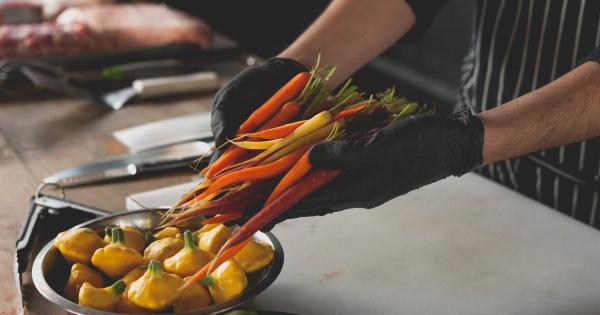Pizza is a crowd-pleasing dish that is enjoyed by people all over the world. It is not only delicious but also easy to make at home. Although pizza is a simple dish, it requires specific care to keep it safe for consumption.
In this article, we will provide you with tips to make your pizza safe to eat.
Tip #1: Wash Your Hands
Before touching any ingredients, wash your hands with soap and water. Most bacteria are introduced to foods through dirty hands. Clean hands can prevent any contamination from occurring.
Tip #2: Use Fresh Toppings
Using fresh ingredients is the key to a delicious pizza, but it is also essential for food safety. Check the expiry dates on the packaged toppings and ensure that fresh vegetables are stored correctly.
Tip #3: Cook at the Right Temperature
Cook your pizza at the right temperature to ensure that all the ingredients are cooked thoroughly. The internal temperature of the pizza should be at least 165 degrees Fahrenheit to eliminate any bacteria that may be present.
Tip #4: Store Leftovers Properly
If you have leftovers, store them in an airtight container in the refrigerator. The pizza should be consumed within 3 days of preparation. If you plan to freeze the pizza, it can last up to 2 months in the freezer.
Tip #5: Keep Preparation Area Clean
Ensure that the preparation area is clean and sanitized before making your pizza. Clean all surfaces, utensils, and equipment with soap and water. Use a disinfectant to sanitize the area thoroughly.
Tip #6: Avoid Cross-Contamination
Cross-contamination is the transfer of bacteria from one surface to another. Avoid this by keeping raw meat or poultry away from other ingredients. Use separate utensils to prepare the toppings and keep them separated from each other.
Tip #7: Use Safe Water
Using safe water for preparing the pizza dough is important. Drinking water or bottled water is safe to use, but avoid using unfiltered tap water that may contain harmful bacteria.
Tip #8: Use Fresh Cheese
When using cheese, use fresh cheese that is free from mold or spoilage. Moldy cheese can cause food poisoning, and it is best avoided.
Tip #9: Don’t Overcrowd the Pizza Toppings
Overcrowding the pizza can cause it to cook unevenly, leaving some areas undercooked. This can be harmful as it can lead to the growth of dangerous bacteria.
Leave some room between toppings to allow air to circulate, ensuring that the pizza cooks uniformly.
Tip #10: Check the Date on the Dough
Pizza dough has a limited shelf life. Check the date on the package and ensure that the dough is not expired. Expired dough can cause food poisoning and should be discarded.




























